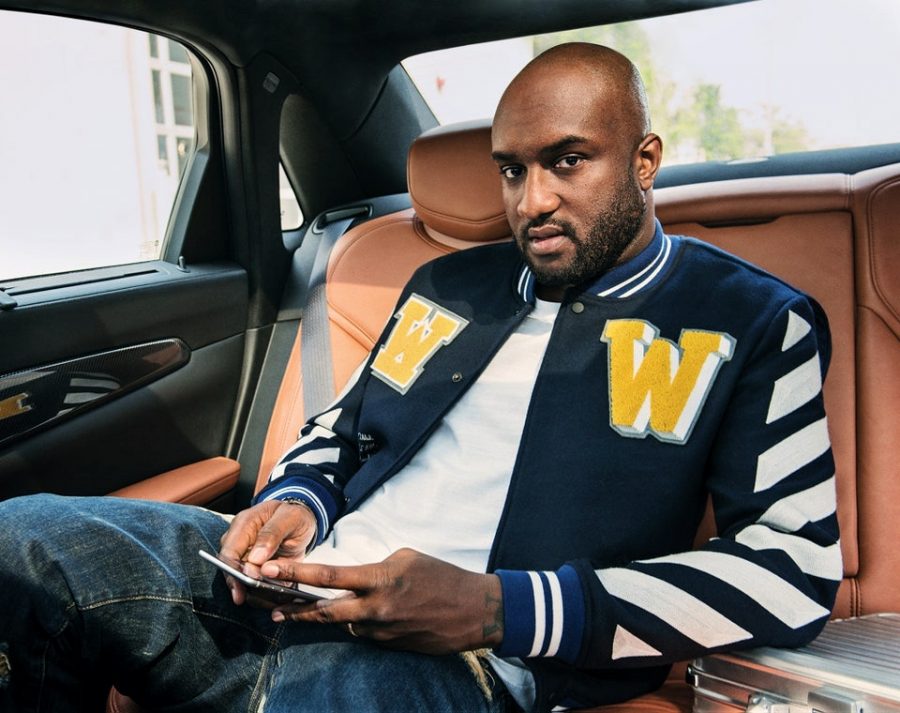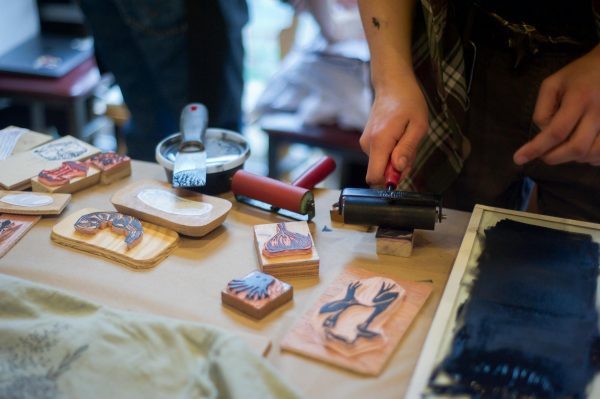Virgil Abloh, Fashion Revolutionary, Dies at 41
Virgil Abloh, artistic director of Louis Vuitton menswear collection and founder of the streetwear brand Off-White, died Sunday, Nov. 28.
Artist, designer, and DJ Virgil Abloh died in Chicago last Sunday after privately battling a rare cardiac cancer. The 41-year-old was diagnosed in 2019, though he remained at the helm of his popular streetwear brand Off-White and served as the artistic creative director of Louis Vuitton menswear until his passing, all while releasing multiple collaborations with brands like Nike and Ikea.
Born out of the logo-crazed, internet-enthralled fashion of the early 2000s and inspired by his own extensive architectural education, the late designer’s work revolutionized streetwear. Since the launch of his first brand, Pyrex Vision, in 2012, Abloh spent his career crafting collections which emphasized the more formal, structural elements of design while also working to demystify the exclusivity of high-fashion culture and clothing. The absence of his youthful curiosity and penchant for humor is a gap that can never be replaced, and he has definitely set a standard for changemakers for years to come.
Born in 1980 to Ghanaian immigrant parents, Abloh studied engineering and architecture in college and graduate school, equipping him with his notoriously nontraditional approach to clothing design. It was around this time that he met Ye (formerly Kanye West) while working at a Chicago print shop. They interned together at the Rome office of Fendi in 2009, which marked the start of a long, collaborative friendship.
In 2011, Abloh started his own gallery in Chicago. There, he served as the artistic director for Jay-Z and Ye’s album Watch the Throne, and later founded Pyrex Vision. Here, Abloh’s design tendencies first started to take shape as he began printing Caravaggio paintings, the word Pyrex, and the number 23 — an homage to Michael Jordan, his childhood hero — onto deadstock Ralph Lauren hoodies he purchased for $40 each and selling them for $550 each. It was the start of streetwear being married to “high art,” hybridizing seemingly opposite worlds.
In 2013, Abloh founded his second and most recognizable brand, Off-White. Here, Abloh trademarked his signature aesthetics — the quotation marks, zip ties, and barricade tape. Irony was essential, executed through reworking the meaning of images or words by placing them next to contrasting ones or using quotation marks to imply self-awareness.
These aesthetic and ideological principles were made even more apparent in his 2017 collaboration with Nike, “The Ten,” where he was asked to rework the brand’s ten most iconic shoes. Some models were made inside out; holes were cut in random spots; the classic “Swoosh” logo was lowered so that it fell over the shoe’s rubber sole; and the sides of soles were labeled with a capitalized, quotation-marked, “AIR,” alluding to the alleged air bubbles inside the base of Air Jordans. The collection was probably the biggest drop in the 2010s and still has new iterations coming out today.
In 2018, Abloh was named artistic director of Louis Vuitton Menswear, becoming only the third Black man to lead a major French fashion house. This was a major decision not only because it broke racial barriers, but also because it changed the meaning of luxury fashion itself. The appointment was the final step towards the complete marriage of streetwear and luxury — the man in charge of the most popular streetwear brand in the world was now also the head of the most popular luxury brand in the world. His subsequent collections brought a new modern take to the heritage of the fashion house, bringing in cultural figures such as Kid Cudi, Dev Hynes, and Saul Willams as models. A year later, he had a collab- oration with Ikea and opened his own exhibition at the Museum of Contemporary Art Chicago.
Abloh’s work was not without controversy. His rejection of “original” ideas and emphasis on referencing others’ works led to many accusations of him stealing designs from younger artists who couldn’t protect themselves and shamelessly copying other famous designers. His comments on the lootings that occured at Black Lives Matter protests during the summer of 2020 and on his measly bail fund donation were surprisingly unaware for an artist so intent on introspection and reflection. Nevertheless, the impact he made in such a short amount of time is undeniable. His designs went beyond clothing — they were identity signifiers that recontextualized art, music, and philosophy, creating a new cultural currency. He made the fashion industry much more accessible by bringing his community with him into the exclusive halls of Paris Fashion Week. Louis Vuitton honored the late designer by carrying on with the Louis Vuitton Spring/Summer 2022 Menswear show two days after his death this past Tuesday, ending it with a recording of Abloh himself saying, “There’s no limit. … Life is so short that you can’t waste even a day subscribing to what someone thinks you can do versus knowing what you can do.”









